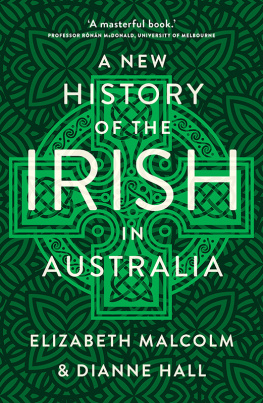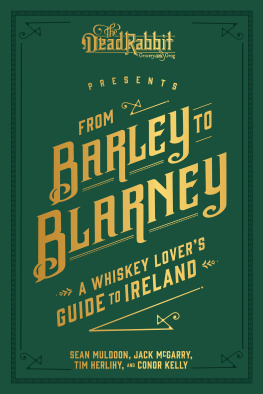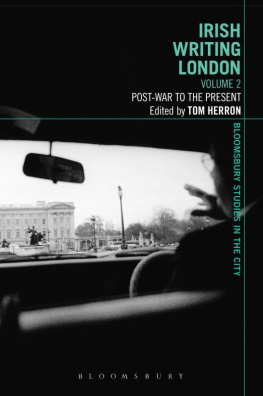PREFACE
COUNT JOSEPH DE MAISTRE, in his Principe Generateur des Constitutions Politiques (Par. LXI. ), says: All nations manifest a particular and distinctive character, which deserves to be attentively considered.
This thought of the great Catholic writer requires some development.
It is not by a succession of periods of progress and decay only That nations manifest their life and individuality. Taking any one of them at any period of its existence, and comparing it with others, peculiarities immediately show themselves which give it a particular physiognomy whereby it may be at once distinguished from any other; so that, in those agglomerations of men which we call nations or races, we see the variety everywhere observable in Nature, the variety by which God manifests the infinite activity of his creative power.
When we take two extreme types of the human species the Ashantee of Guinea, for instance, and any individual of one of the great civilized communities of Europe-the phenomenon of which we speak strikes us at once. But it may be remarked also, in comparing nations which have lived for ages in contiguity, and held constant intercourse one with the other from the time they began their national life, whose only boundary-line has been a mountain-chain or the banks of a broad river. They have each striking peculiarities which individualize and stamp them with a character of their own.
How different are the peoples divided by the Rhine or by the Pyrenees! How unlike those which the Straits of Dover run between! And in Asia, what have the conterminous Chinese and Hindoos in common beyond the general characteristics of the human species which belong to all the children of Adam?
But what we must chiefly insist upon in the investigation we are Now undertaking is, that the life of each is manifested by a special physiognomy deeply imprinted in their whole history, which we here call character. What each of them is their history shows; and there is no better means of judging of them than by reviewing the various events which compose their life.
For the various events which go to form what is called the history of a nation are its individual actions, the spontaneous energy of its life; and, as a man shows what he is by his acts, so does a nation or a race by the facts of its history.
When we compare the vast despotisms of Asia, crystallized into forms which have scarcely changed since the first settlement of man in those immense plains, with the active and ever-moving smaller groups of Europeans settled in the west of the Old World since the dispersion of mankind, we see at a glance how the characters of both may be read in their respective annals. And, coming down gradually to less extreme cases, we recognize the same phenomenon manifested even in contiguous tribes, springing long ago, perhaps, from the same stock, but which have been formed into distinct nations by distinct ancestors, although they acknowledge a common origin. The antagonism in their character is immediately brought out by what historians or annalists have to say of them.
Are not the cruelty and rapacity of the old Scandinavian race Still visible in their descendants? And the spirit of organization displayed by them from the beginning in the seizure, survey, and distribution of land in the building of cities and castles in the wise speculations of an extensive commerce may not all these characteristics be read everywhere in the annals of the nations sprung from that original stock, grouped thousands of years ago around the Baltic and the Northern Seas?
How different appear the pastoral and agricultural tribes which have, for the same length of time, inhabited the Swiss valleys and mountains! With a multitude of usages, differing all, more or less, from each other; with, perhaps, a wretched administration of internal affairs; with frequent complaints of individuals, and partial conflicts among the rulers of those small communities with all these defects, their simple and ever-uniform chronicles reveal to us at once the simplicity and peaceful disposition of their character; and, looking at them through the long ages of an obscure life, we at once recognize the cause of their general happiness in their constant want of ambition.
And if, in the course of centuries, the character of a nation has changed an event which seldom takes place, and when it does is due always to radical causes its history will immediately make known to us the cause of the change, and point out unmistakably its origin and source.
Why is it, for instance, that the French nation, after having lived for near a thousand years under a single dynasty, cannot now find a government agreeable to its modern aspirations? It is insufficient to ascribe the fact to the fickleness of the French temper. During ten centuries no European nation has been more uniform and more attached to its government. If to-day the case is altogether reversed, the fact cannot be explained except by a radical change in the character of the nation. Firmly fixed by its own national determination of purpose and by the deep studies of the Middle Ages nowhere more remarkable than in Paris, which was at that time the centre of the activity of Catholic Europe the French mind, first thrown by Protestantism into the vortex of controversy, gradually declined to the consideration of mere philosophical utopias, until, rejecting at last its long-received convictions, it abandoned itself to the ever-shifting delusions of opinions and theories, which led finally to skepticism and unbelief in every branch of knowledge, even the most necessary to the happiness of any community of men. Other causes, no doubt, might also be assigned for the remarkable change now under our consideration. The one we have pointed out was the chief.
To the same causes, acting now on a larger scale throughout Europe, we ascribe the same radical changes which we see taking place in the various nations composing it: every thing brought everywhere in question; the mind of all unsettled; a real anarchy of intellect spreading wider and wider even in countries which until now had stood firm against it. Hence constant revolutions unheard of hitherto; nothing stable; and men expecting with awe a more frightful and radical overturning still of every thing that makes life valuable and dear.
Are not these tragic convulsions the black and spotted types wherein we read the altered character of modern nations; are they not the natural expression of their fitful and delirious life?
These considerations, which might be indefinitely prolonged, show the truth of the phrase of Joseph de Maistre that all nations manifest a particular and distinctive character, which deserves to be attentively considered.
The fact is, in this kind of study is contained the only possible philosophy of history for modern times.
With respect to ages that have passed away, to nations which have run their full course, a nobler study is possible the more so because inspired writers have traced the way. Thus Bossuet wrote his celebrated Discours. But he stopped wisely at the coming of our Lord. As to the events anterior to that great epoch, he spoke often like a prophet of ancient times; he seemed at times to be initiated in the designs of God himself. And, in truth, he had them traced by the very Spirit of God; and, lifted by his elevated mind to the level of those sublime thoughts, he had only to touch them with the magic of his style.
But of subsequent times he did not speak, except to rehearse the well-known facts of modern history, whose secret is not yet revealed, because their development is still being worked out, and no conclusion has been reached which might furnish the key to the whole.







